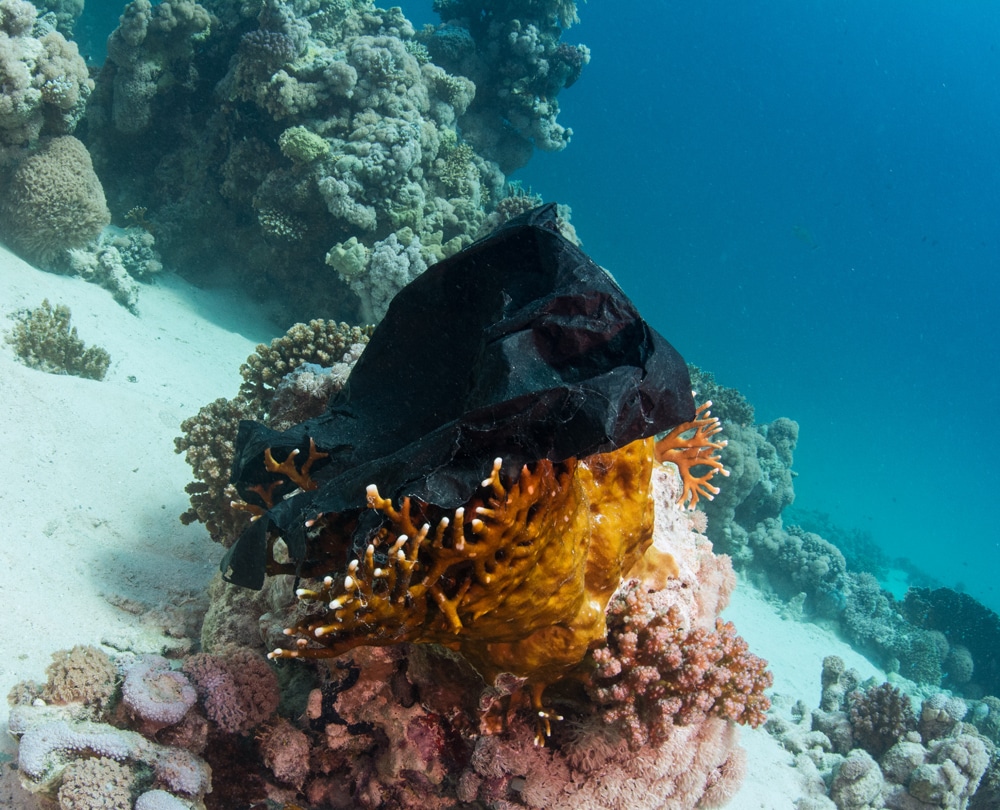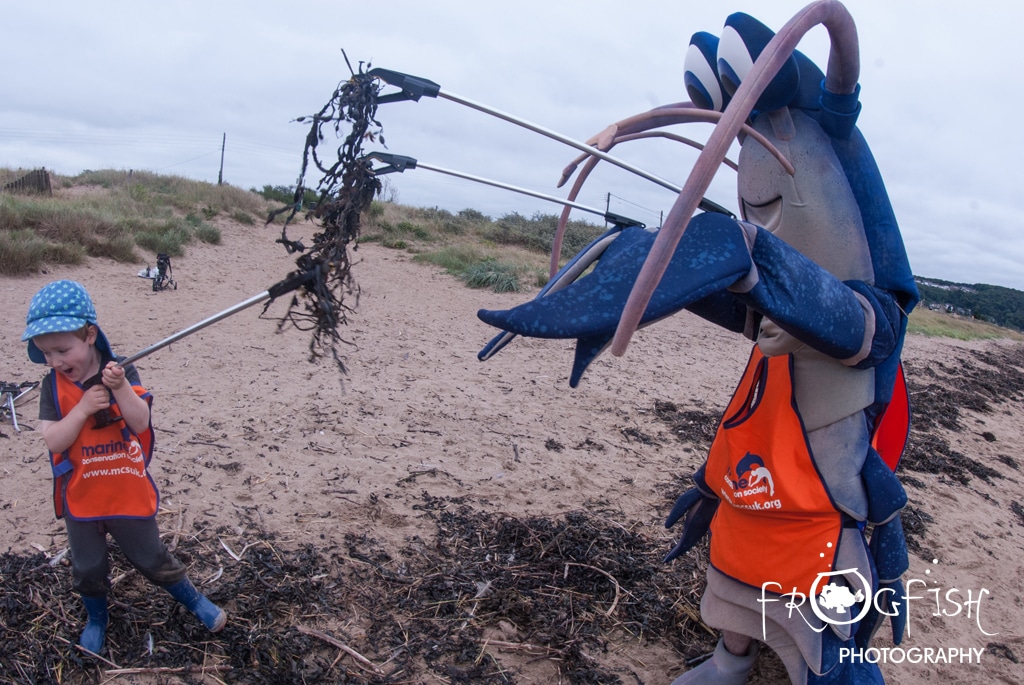News
25th Great British Beach Clean has the opportunity to break records

Cleaning more beaches could tip the balance when it comes to stopping the plastic tide says Marine Conservation Society
There’s no silver bullet when it comes to the UK’s beach litter problem, but, says the charity behind this year’s 25th Great British Beach Clean, there’s an opportunity to become part of the solution. The Marine Conservation Society needs volunteers to take part in clean-ups nationwide, and is especially looking for individuals willing to lead a clean themselves over the weekend 14-17th September, with the charity’s support.
During last year’s Great British Beach Clean, just under 7,000 volunteers cleaned 339 beaches and picked up over 255,000 pieces of litter – a 10% rise in the amount of rubbish on UK beaches compared to 2016.
Now, 25 years after the first mass beach cleaning event, the Marine Conservation Society (MCS) says the UK stands on the cusp of helping make its silver anniversary event the biggest ever.
Plastic pollution in our seas and the crisis the oceans face are no longer under the radar – industry, individuals and governments know that we have to act now to take the momentum started by MCS in 1994 when the charity began collecting beach litter data to fresh heights. The momentum has been taken to another level over the last 12 months by Blue Planet II, Sky Ocean Rescue and MCS’s own #STOPtheplastictide campaign.
“Cleaning 339 individual beaches last year was a fabulous achievement by our volunteers,” says Lizzie Prior, MCS Beach and River Clean Officer. “But we know that it’s only the tip of the iceberg. There are hundreds of beaches around our coasts that have never been cleaned and surveyed – and it’s the collection of this data that is so important to getting even more positive changes implemented than have already been achieved in the last year or so.”
MCS volunteers have cleaned thousands of UK beaches over the last 24 years. From the Hebrides to Cornwall, Gwynedd to Kent, the charity has recorded just about every bit of rubbish its volunteers have picked up, and used that information to create a sea of change for our oceans. Reducing carrier bag numbers, a movement to stop plastic straws being handed out in their thousands, clearer labelling on wet wipes and proposed deposit return systems – all have been made to happen thanks to volunteer beach cleaners.

The single-use plastic carrier bag charge across all the home nations has resulted in a 28% drop in the number of bags found on UK beaches. Microbeads in personal care products have been banned in the UK and manufacturers and retailers have made wet wipe labelling clearer, and cut out their plastic content. High Street bars, and restaurants and smaller independents have banned plastic straws in their hundreds.There’s a growing momentum to see a tax on plastic ‘on the go’ items, like lids, stirrers and cutlery.
“The more beaches we have litter data for, the clearer the picture we will have of where it all comes from and what needs to be targeted next,” says Lizzie Prior. “We would love to see well over 500 beaches cleaned this year. If you live near a beach or have a favourite that you regularly visit, why not show it some love and organise a beach clean and survey. It’s really simple and the data you collect could result in further legislative change to help our oceans breathe plastic free.”
The 2018 Great British Beach Clean is the second one to be sponsored by Waitrose. In the last year the supermarket has introduced more easily recyclable sandwich packets, banned the sale of plastic straws in store from September and stopped giving them out in their cafés and are removing all single-use takeaway coffee cups by the autumn, saving up to 52 million cups annually potentially reaching our seas.
Less litter on UK beaches will save the lives of some of our best loved marine wildlife, protect our kids building sand castles and show the world what the great British seaside really looks like beneath its escalating mountain of rubbish.
Find a beach you want to clean – sign up and register it on the MCS online system – and they will provide you with all the help you need to get going at: www.mcsuk.org/
Gear News
Introducing the TR-80, IR-50 and CS-30 Regulators from DYNAMICNORD

Whether you are a beginner or a professional diver – with the three new main regulators from DYNAMICNORD, everyone will find their favourite regulator. They all look super stylish.
Excellent performance with the TR-80
Quality and performance are the be-all and end-all for regulators. It is not for nothing that the TR stands for Tec Reg. The innovative design of the TR-80 guarantees absolute reliability – even in ice-cold waters.

Perfect breathing effort at 0.8 J/l / certified for diving in waters below 10 degrees / structural design made of solid brass for best cold protection / membrane-compensated design with dry seal of the first stage / reduced exhalation effort thanks to optimized exhalation membrane and bubble deflector / adjustable Venturi (dive/predive) and adjustment knob for individual inhalation comfort / innovative design of the front cover prevents free-flow in strong currents or when diving with scooters / design made of sandblasted brass, matt chrome finish / 2 HP and 4 LP outlets / mouthpiece made of high-quality, anti-allergic silicone for maximum comfort.


Amazing underwater adventures with the IR-50
The IR-50 is the top regulator for advanced and experienced divers. Natural breathing is the essence of this regulator.

Ideal breathing effort at 0.8 J/l /certified for diving in waters below 10 degrees / compensated membrane / adjustable venturi (dive/predive) and adjustment knob for individual inhalation comfort/ outlet valve and deflector for minimum exhalation effort and reduction of bubbles on the face / design made of sandblasted brass, matt chrome finish / 2 HP and 4 NP outlets / mouthpiece made of high-quality, anti-allergic silicone for maximum comfort.


The Workhorse – our CS-30
For diving centres and diving beginners – the workhorse stands for strong construction, reliability and robustness. Perfect for your training.

Optimal breathing effort at 0.8 J/l /recommended for diving in waters above 10 degrees / non-compensated piston / adjustable venturi (dive/predive) / outlet valve and deflector for minimum exhalation effort and reduction of bubbles on the face / design made of sandblasted brass, matt chrome finish / 1 HP and 3 NP outlets / mouthpiece made of high-quality, anti-allergic silicone for maximum comfort.


Octopus OP-30
The OP-30 is the ideal addition to all DYNAMICNORD regulators. It is identical in construction to the CS-30.

The TR-80, IR-50, CS-30 (DIN & INT) regulators and the Octopus OP-30 are available from DYNAMICNORD dealers and in the online store.
DYNAMICNORD – Your Outdoor Companion.
Marine Life & Conservation
Paul Watson Released as Denmark Blocks Japan’s Extradition Bid

Renowned anti-whaling activist Paul Watson has been released from custody in Greenland after spending five months in detention. Denmark’s Justice Ministry rejected Japan’s request for his extradition, citing insufficient guarantees that his time already served in custody would be credited against any potential sentence.
The 74-year-old Canadian-American was arrested on July 21 in Nuuk, Greenland’s capital, when his ship docked to refuel. His arrest was based on a 2012 Japanese warrant related to a 2010 encounter in Antarctic waters. Japan alleged Watson obstructed operations and caused damage to a whaling research ship during efforts to disrupt illegal whaling. Watson has consistently denied these claims, maintaining his commitment to marine conservation.
Denmark, which oversees extradition matters for Greenland, concluded that while the legal conditions for extradition were met, the lack of assurances from Japan regarding time-served credit made extradition untenable.
In a video shared by his foundation, Watson expressed gratitude and relief, saying, “After five months, it’s good to be out… and good to know they’re not sending me to Japan.” He added that the most difficult part of his time in custody was being separated from his two young sons.
Watson is a pioneering figure in marine conservation, known for founding the Captain Paul Watson Foundation in 2022 after decades of activism with the Sea Shepherd Conservation Society. His bold efforts to defend marine life have earned him widespread support, including from celebrities and conservationists. His work has also been featured in the acclaimed reality TV series Whale Wars.
Watson’s lawyer, Jonas Christoffersen, praised the decision, stating, “We are happy and relieved that Paul Watson is now free.” He added that Watson is eager to reunite with his family and continue his vital work.
The arrest occurred while Watson’s vessel, the M/Y John Paul DeJoria, was en route to the North Pacific with a team of 26 volunteers to intercept a Japanese whaling ship. His foundation described the arrest as politically motivated and emphasized that Watson’s actions were focused on ending illegal whaling practices.
Japan resumed commercial whaling in 2019 after leaving the International Whaling Commission, asserting that whale meat is a cultural tradition. Conservationists, however, continue to challenge these practices, highlighting their impact on marine ecosystems.
Despite the challenges, Watson remains steadfast in his mission to protect marine life and bring attention to whaling practices. His dedication to ocean conservation has made him a globally respected advocate for the environment.
-

 News2 months ago
News2 months agoIconic SS United States to become the World’s Largest Artificial Reef
-

 News3 months ago
News3 months agoBook Review – 52 Assignments: Underwater Photography
-

 Gear News3 months ago
Gear News3 months agoDYNAMICNORD – New German diving brand enters the British market
-

 News3 months ago
News3 months agoExploring Cenote El Pit: A Diver’s Dream
-

 Gear News3 months ago
Gear News3 months agoTry BARE drysuits (and maybe even win one!) this Friday with Sea & Sea at North West Dive Fest
-

 Marine Life & Conservation3 months ago
Marine Life & Conservation3 months agoBook Review: Coral Triangle Cameos
-

 Blogs2 months ago
Blogs2 months agoDive the Egyptian Red Sea this Autumn with Regaldive
-

 News3 months ago
News3 months ago2024 Ocean Art Underwater Photo Competition Announced
















